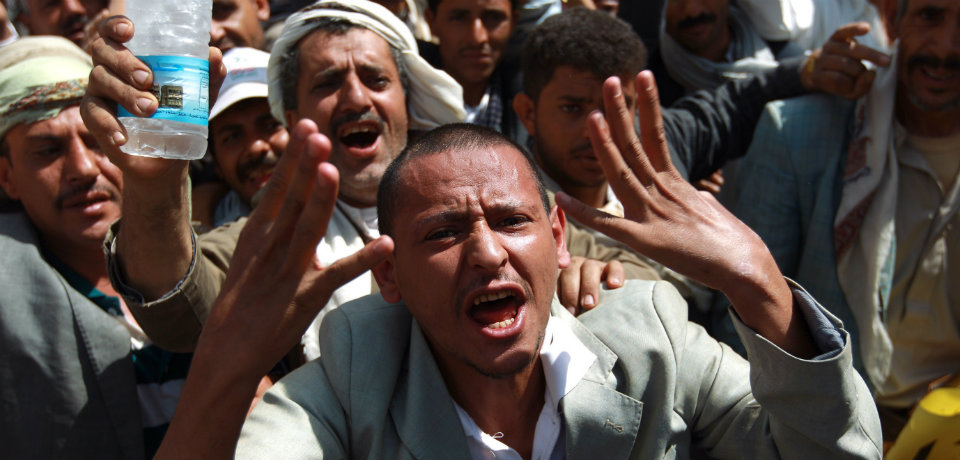The recent dramatic slide in crude oil prices has led to economic strain throughout the Arabian Peninsula, particularly in Bahrain. The near-70% fall in oil price since mid-2014 has “shattered” government revenues. While Saudi Arabia has funded its deficit by drawing on its central bank deposits, and Kuwait, Qatar, and the UAE have sufficient assets to weather a decade of low oil prices, Bahrain appears more vulnerable to the slide in prices. In order to stem the economic crisis, it could attempt to reduce more subsidies like water and electricity, after already cutting meat subsidies.
The fall in oil prices has already had an effect on both Bahrain’s economy and its politics. Economically, it has forced Bahrain’s government to raise oil prices by 60 percent. This dramatic increase in fuel prices led to a rare voicing of opposition in parliament, notable because parliament is mostly composed of pro-government lawmakers. MPs argued that the decision would mainly hurt the poor. The government responded by saying the decision was made by the executive branch. The opposition group al-Wefaq claimed that this unilateral move represents “an entrenchment of the monopoly of power, and the exclusion of people from political participation.” MP Ahmad Qaratah also voiced concerns over the “absence of transparency in the government’s handling of the crisis.”
Foreign Policy senior energy columnist Keith Johnson draws a different conclusion from the reduction of subsidies. He notes that throughout the Middle East and Persian Gulf, the lifting of subsidies, whether fuel or food, has often been accompanied by political and social unrest. In order to keep their economies from suffering, Johnson says that states need to trim back subsidies. This is difficult, he says, because “cheap energy is one of the few governmental benefits that societies across the region enjoy, and many consider it their birthright. When regular citizens see one of their few carrots snatched away, anger quickly escalates.” Protests and dissatisfaction are ongoing in Bahrain over the execution of Sheikh Nimr and the attack on a Shia religious center. The lifting of fuel subsidies, along with meat and potentially water and electricity, may cause further problems for the government. Johnson concludes: “The social contracts in place in many of these states have increasingly left wealth distribution and subsidies as the only real pillars still holding up regimes.”
Tyler Pry is an Advocay Intern at Americans for Democracy & Human Rights in Bahrain
Photo courtesy of Foreign Policy





